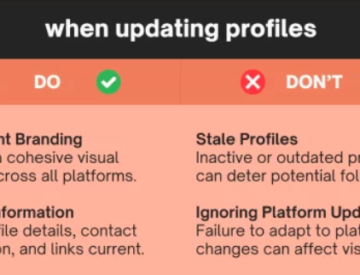I find it funny, if not sad, when I hear folks saying social media is all about engaging with people, having discussions and enhancing the value of a brand. They say it like it’s a mantra, almost as if it’s wrong or un-pure to actually make some money. I believe it is indeed about engaging with people, having discussions and enhancing the value of the brand, but the ultimate goal has to be to generate sales.
Some will say “oh, well no, it’s about generating positive word-of-mouth”, or the classic “it helps with customer service issues”. It may even be about increasing awareness for your service, hotel or destination. Yup, absolutely. But all of this has to impact the bottom line, or else… In fact a recent Harris Survey proved that responding to negative feedback online benefits companies and can turn detractors into loyal ambassadors!
It’s not either/or
To me, it’s a false debate, and these elements don’t have to be mutually exclusive. The way a company or a brand communicates in social media is simply different than what we’ve been used to with brick and mortar, traditional venues. If you are looking at doing a sales pitch every time you send out a tweet, or post on your Facebook page, it will be a short-lived strategy as fans and followers will simply either tune out or unfollow you. In that sense, not only should you listen to what folks are saying about you in blogs, on twitter or Facebook, it’s a must. Then interact, and eventually be of service. A good example is given today on FuzedMarketing’s blog.
This company, Resideo, reached out to offer its services, answering a query and offering assistance with lodging in Chicago. I don’t know if this company sends out promotional tweets, but my guess is they don’t do one-way conversations. I very much like their smooth approach in helping this tweep finding a hotel, a clear demonstration of listening in and monitoring what’s being said on twitter. Indeed, there are sales to be made on twitter!
In that sense, there are numerous examples of how a destination, a hotel property or a ski resort may tap into these opportunities. For illustration purposes, here is another example of someone reaching out on twitter, this time to find out a good restaurant near Le Massif, the ski hill part of the destination project I actually work for. Le Massif de Charlevoix answered this tweep, but what if a restaurant had responded directly, by showcasing its menu of the day? Or perhaps a better answer would have been to first understand what type of restaurant she was looking for, then recommend accordingly? Either way, these two examples showcase that being social is not just about engaging and having discussions. These conversations can and should eventually lead to action, which in turn lead to revenue generation at some turn down the road. Nothing wrong with that, is there?
Either way, these two examples showcase that being social is not just about engaging and having discussions. These conversations can and should eventually lead to action, which in turn lead to revenue generation at some turn down the road. Nothing wrong with that, is there?









Leave a Reply